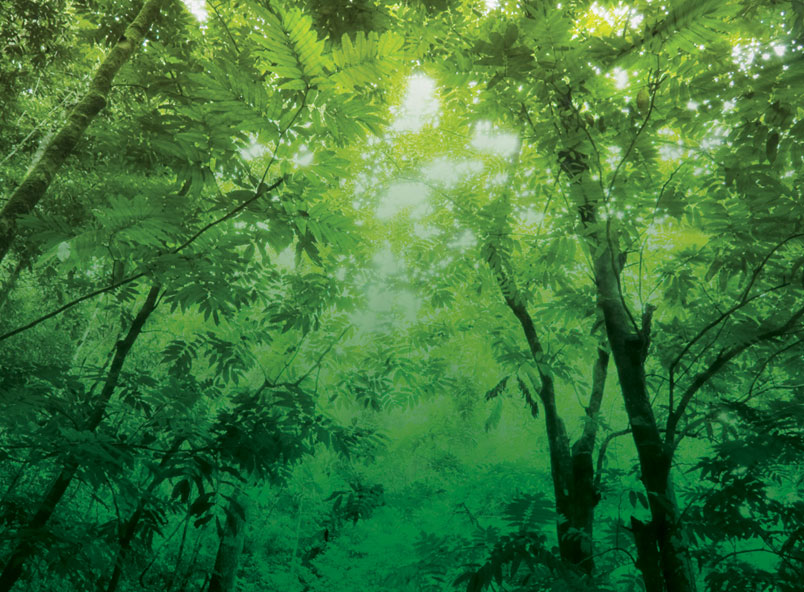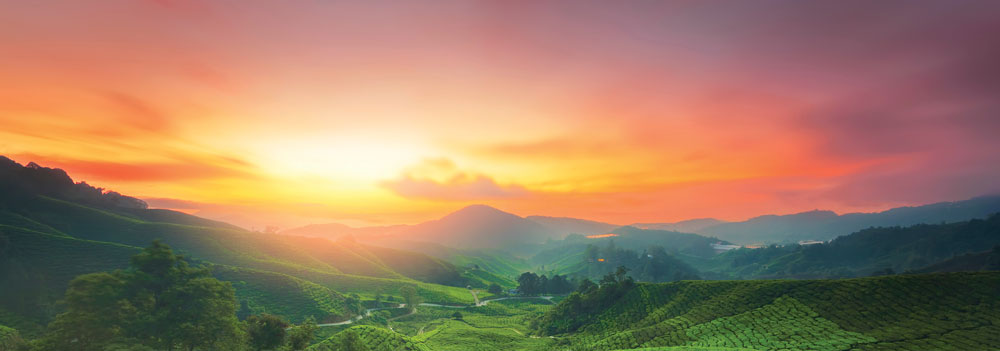



Spotlight on Malaysia's forests at Expo 2020 Dubai
December, 2020 in Issue 4 - 2020, Sustainability
Malaysia will be among 192 countries participating in Expo 2020 Dubai, now rescheduled to run from Oct 1, 2021 to March 31, 2022. Themed ‘Connecting Minds, Creating the Future’, the event is the first to be held in the Middle East, Africa and South Asia regions.
The achievements of the forestry sector will be the shining example of Malaysia’s theme ‘Energising Sustainability’. Its pavilion will depict the country’s seriousness and commitment to climate change mitigation and forest conservation.
Malaysia will engage with other countries, businesses and the anticipated 25 million visitors in exploring innovative ideas and initiatives to assist its endeavours as the leading tropical country in conserving forests for the shared prosperity of humankind.
The Malaysian pavilion is self-built and depicts a Rainforest Canopy. Its theme showcases the nation’s commitment and approaches to sustainable development. It is the first pavilion to adopt the net zero carbon approach.
Activities will include permanent displays, pocket talks, summits and forums, cultural performances, demos and 26 weekly thematic business programmes. The business weeks will be helmed and supported by 22 ministries, 40 agencies and five state governments.
Malaysia’s participation is led by the Ministry of Science, Technology and Innovation, with the Malaysian Green Technology and Climate Change Centre (MGTC) as the implementing agency.
The MGTC was formerly known as the Malaysian Green Technology Corporation or GreenTech Malaysia. It is a government agency under the purview of the Ministry of Environment and Water, mandated to lead the nation in the areas of green growth, climate change mitigation and climate resilience and adaptation.
The role of carbon-absorbing forests especially tropical rainforests in regulating climate has never been more important. Once again, protecting the remaining forested areas in developing countries has regained international attention and has been thrust into the forefront of the battle to reverse climate change.
Forest land accounts for about 31% of the world’s land surface area of 4.1 billion ha, with the largest proportion (45%), in the tropical domain. Of this, the oldest biome located close to the equator and found within the tropics of Cancer and Capricorn – the rainforests of Amazon, Congo Basin and Southeast Asia – is touted to be the game-changing carbon sink of the world.
Forest-related emissions due to land-use change and unsustainable logging practices contribute about one-fifth of all global emissions. Therefore, protecting these remaining sinks would give humankind the fighting chance to reverse the course of runaway climate change.
Their importance has gained substantial traction as countries intensify negotiations to enhance international cooperation to combat climate change following the implementation of the first phase of the Kyoto Protocol (2008-12); under this, developed countries will reduce 5% of their emissions from the 1990 level.
The role of forests as both emission sources and carbon reservoirs has been acknowledged and addressed, namely with the mechanism known as Reducing Emissions from Deforestation and Forest Degradation in developing countries (REDD-plus). This was adopted in 2007 at the 13th Conference of the Parties to the United Nations Framework Convention on Climate Change (UNFCCC) in Bali, Indonesia.
The ‘plus’, which refers to the role of conservation, sustainable management of forests and enhancement of forest carbon stocks, is significant for many developing countries where deforestation rates are relatively small. This means that such countries would be compensated for having kept their forests as the lungs of the world; hence REDD-plus would be an effective policy approach to preventing deforestation.
Decades of disinformation
Contrary to decades of disinformation that Malaysia has a ‘high deforestation rate’, one indisputable fact stands out. More than 50% of the country’s landmass is still covered by forests after 63 years of post-Independence nation-building.
How did a country that relied heavily on its primary resources – an economic activity carried over from the colonial period – maintain so much of its forest area amidst population growth, infrastructure demands and pressure to extract more timber? The answer lies in the appreciation for sustainable development.
The watershed year was 1992. The venue was Rio de Janeiro, a city in Brazil where a global meeting of the UN Conference on Environment and Development agreed that environmental protection and economic development are not necessarily mutually exclusive. And that developing countries must not be forced to give up their right to a better standard of living in the name of environmental protection. It was accepted that achieving sustainable development requires balancing the three pillars – economic, environmental and social – of modern society.
Malaysia was a vocal advocate for the rights to development, to industrialise, to eradicate poverty and to prosper. This legitimate desire to become a developed nation would inevitably mean some forested areas would have to give way for economic transformation.
Yet, the government made the bold pledge of maintaining at least 50% (16.5 million ha) of its relatively small landmass as forest. To date, no country has promised to set aside half of its territory as a contribution to global well-being. As at 2018, approximately 55.3% of the land area was still under forest. The pledge at the Earth Summit in Rio has indeed become Malaysia’s generous gift to the world.
Despite the challenges, scepticism and doubts, Malaysia remains steadfast in upholding its pledge. One item of disinformation has been the suspicion that Malaysia counts its oil palm and rubber plantations as part of the 50% forest cover – this claim has posed a considerable challenge to its palm oil industry
It must be clarified that, in the country’s reporting to the Food and Agriculture Organisation – the UN agency tasked with monitoring the world’s forestry resources – rubber and oil palm plantations have never been included in the statistics. What has been counted as forests are dipterocarp forests, montane forests, and freshwater, peat and mangrove swamp forests.
In addition, as a signatory to the UNFCCC and its supplementary treaties – the Kyoto Protocol and the Paris Agreement – Malaysia is building on the Earth Summit pledge by protecting vital carbon sinks.

Sustainable forest management
Malaysia has since adopted the world-renowned Sustainable Forest Management (SFM) practices and subjected its timber harvesting supply chain practices to third-party certification. These efforts have minimised the negative impacts of timber harvesting in the production forests and protected its carbon stock.
Management of specific ecological functions of forests has also been enhanced through the establishment of totally protected areas as well as protective status for soil conservation and water catchment within the permanent reserve forests system. Soil protection not only preserves the fertility of soil and prevents run-off and sedimentation as part of flood mitigation, it also prevents the release of soil carbon.
Following the anti-tropical timber campaign in the late 1980s and early 1990s that resulted in the demand for traceability of timber products, Malaysia embraced voluntary timber certification with the establishment of the Malaysian Timber Certification Scheme (MTCS). Governed by the Malaysian Timber Certification Council, it is both a national commitment towards ensuring SFM and a market-linked tool to reform forestry practices.
The MTCS has gradually gained global recognition. In 2009, it became the first tropical timber certification scheme in the Asia Pacific region to be endorsed by the Netherlands’ Programme for Endorsement of Forest Certification (PEFC), the largest forest certification programme representing more than 300 million ha of certified forests worldwide.
Operational since 2001, the MTCS has generated 2.2 million m³ of certified timber and timber products exported to 69 destinations as at 2019. To date, more than five million ha of forests in Malaysia have been certified under the MTCS and Forest Stewardship Council Scheme (FSC). The Deramakot Forest Reserve in the state of Sabah became the world’s first tropical rainforest to be certified by the FSC in 1997.
Tracing of timber from the forests to the end products is assured by the Chain of Custody (CoC) certification process; 381 timber companies have received PEFC CoC certificates, out of some 3,500 such companies in Malaysia.
The total area of certified forests under the MTCS represents 13% of the world’s certified tropical forests, a remarkable achievement for a small developing country. In fact, under the National Policy on Biological Diversity (2016-25), the country has set a target of 100% of all timber and timber products to be sustainably managed.
All this is testimony to Malaysia’s seriousness in implementing SFM and contributing to the world trade in sustainable timber and timber products, thus ensuring that its logging industry is a positive force in terms of global forestry governance and living up to the challenge of sustainable development.
It also puts the country in good stead to fulfil its commitment not only to the Paris Agreement but also the Convention on Biological Diversity and the 2030 Agenda for Sustainable Development and its 17 Sustainable Development Goals.
Ts. Shamsul Bahar Mohd Nor
CEO, MGTC &
Project Director, Malaysia Pavilion for Expo 2020 Dubai